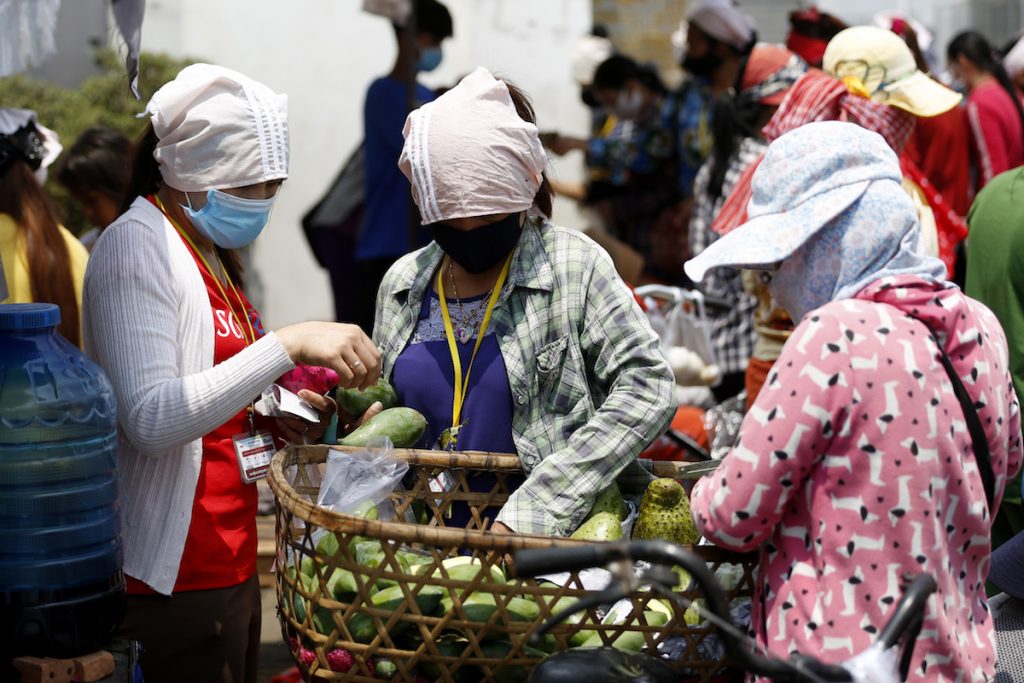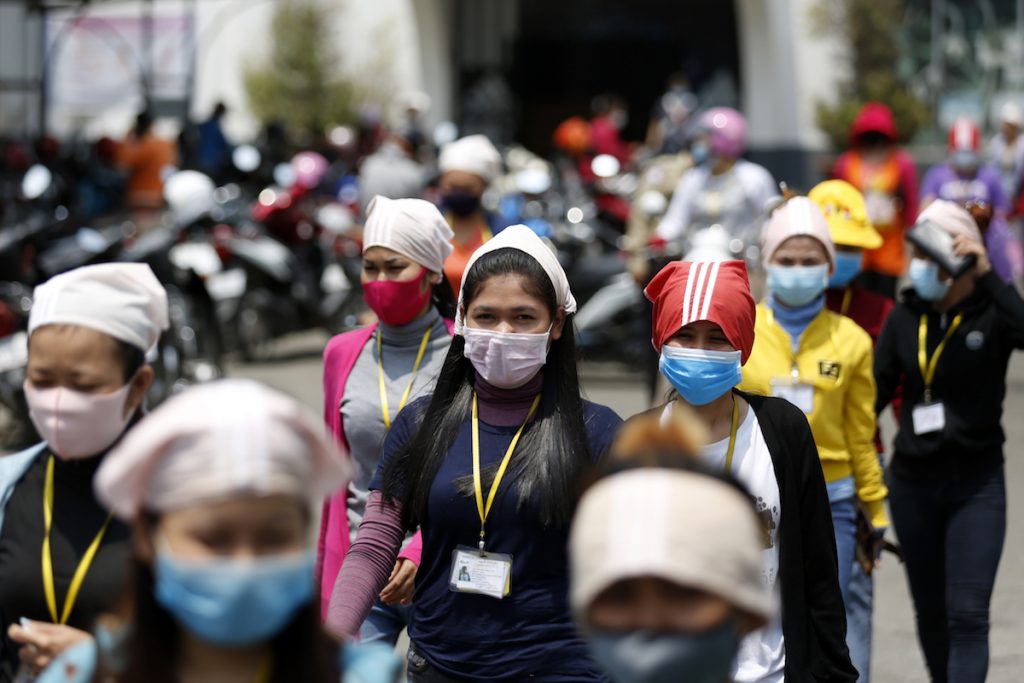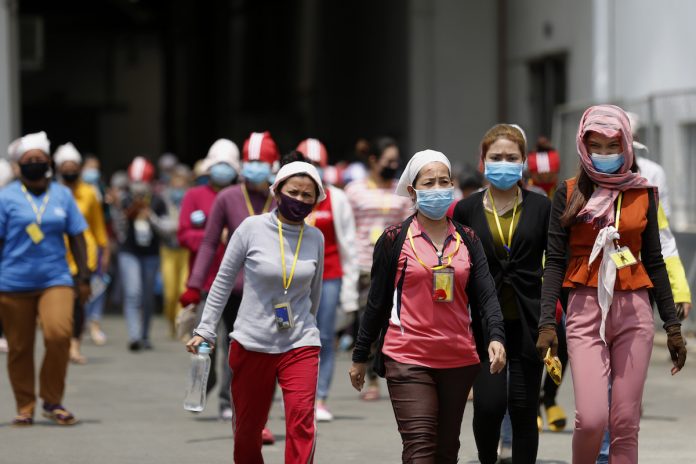Cambodia’s economy is starting to feel the impact of the COVID-19 pandemic, especially on the country’s garment, footwear and travel industries.
Factories, primarily garment and footwear, were first hit by a shortage of raw materials mainly sourced from China. The second hit came when European and American fashion brands cancelled orders after their retail outlets closed due to the pandemic.
These factories along with the tourism trade are the backbone of the Cambodian economy.
The Southeast Asian nation has about 1,000 factories which employ roughly 850,000 workers, says the International Labor Organization.
During a recent press conference, Cambodia’s Prime Minister Hun Sen announced that over 100 factories had suspended their operations during March and April.
The suspensions have put the Cambodian government in a difficult position. In February Hun Sen promised workers they’d receive 60 percent of the minimum wage — US$ 190 per month — if their factories apply for suspension.
But last week he announced suspended workers will receive only US$70 per month, or 37 percent of the minimum wage which is paid in differing amounts by the government and the employers. The government will pay US$40 while the employer will pay US$30, Hun Sen said, adding that the decrease of the amount announced in February was due the employers not being able to pay more.

Rom Phary has worked at the Gladpeer Garment Factory for over 10 years. The factory suspended its operations from April 1 till May 1.
The 36-year-old said that she’s not sure how much money she will receive, because her factory was suspended before the prime minister’s announcement.
“We will know on April 25, when we get our suspension pay,” she said. The factory that Phary works for has 3,000 workers on its books.
But the future for the industry beyond April also looks grim.
Several overseas clothing brands have cancelled their orders with Cambodia-based factories or are delaying new orders. A number of big fashion brands, such as H&M, Adidas, M&S and VF, said that they are committed to pay for what they have ordered, but it’s uncertain if and how many new orders these brands will place.
Others are acting even more drastically.
In a letter, dated March 23, seen by LiCAS.news reporters in Phnom Penh, the Dutch-Belgian-German fashion retailer C&A said that “all orders — no matter their current status/development — with a last delivery date in March, April, May or June 2020 are herewith, i.e. with immediate effect, cancelled.”
The letter also stated that no orders “may continue to be produced, effective immediately.”
C&A is a major buyer in Cambodia.
Cambodia isn’t alone in this regard. Factories around the world have had their orders cancelled, especially in nearby Bangladesh.
In an open letter, the Garment Manufacturers Association of Cambodia (GMAC) has urged the brands to “honor the terms” of purchasing contracts.
GMAC said that manufacturers operate on razor thin margins and have much less ability to shoulder such liabilities compared with international brands.
“The consequential burden faced by our workers who still need to put food on the table is enormous and extreme,” the letter said.
Ath Thorn, the president of Cambodian Labor Confederation, has concerns as well. He believes some employers are using the pandemic as an excuse to get rid of their workers.
“There are factories that have the ability to pay a worker, but they are using this occasion [as an excuse not to],” he said.
Thorn said that his union, together with union-partners, recently petitioned the government to keep to its February promise in paying workers.
“Normally workers need between US$200 and US$250 per month to cover all their expenses, such as rent, food and paying back a loan,” Thorn said. “If they only get US$70, they will face a big financial shortage.”

Even though the worse may be yet to come, many workers are already struggling, including garment worker Phary who lives in Phnom Penh.
Phary and her husband took a US$10,000 loan to buy a small piece of land, where the couple hope to build a small house in the future. The rest of the loan was used to buy a new motorbike and to pay for the education needs of two of their children.
“Each month I have to pay US$300 back to the bank. I also need to pay US$150 in rent per month, and then there’s increased prices for food and other goods,” Phary said.
“I expected that I could handle all of it with my salary at the factory, and with my husband’s income at a construction site, but it doesn’t work that way now. My factory has suspended all work, and my husband is less busy as well.”
Phary now wonders how they’re going to manage if she only receives US$70 per month.









